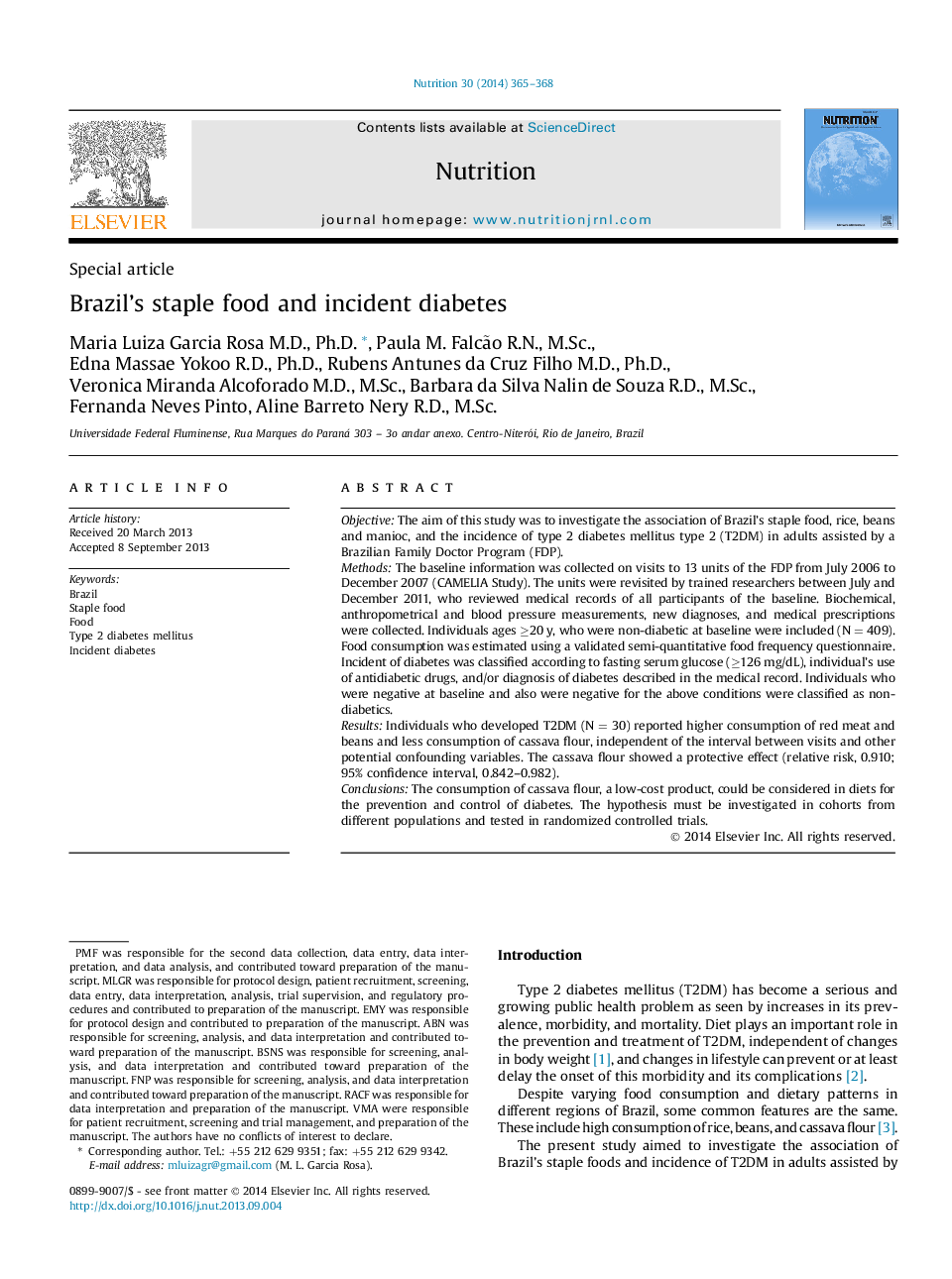| کد مقاله | کد نشریه | سال انتشار | مقاله انگلیسی | نسخه تمام متن |
|---|---|---|---|---|
| 3276351 | 1208553 | 2014 | 4 صفحه PDF | دانلود رایگان |

ObjectiveThe aim of this study was to investigate the association of Brazil’s staple food, rice, beans and manioc, and the incidence of type 2 diabetes mellitus type 2 (T2DM) in adults assisted by a Brazilian Family Doctor Program (FDP).MethodsThe baseline information was collected on visits to 13 units of the FDP from July 2006 to December 2007 (CAMELIA Study). The units were revisited by trained researchers between July and December 2011, who reviewed medical records of all participants of the baseline. Biochemical, anthropometrical and blood pressure measurements, new diagnoses, and medical prescriptions were collected. Individuals ages ≥20 y, who were non-diabetic at baseline were included (N = 409). Food consumption was estimated using a validated semi-quantitative food frequency questionnaire. Incident of diabetes was classified according to fasting serum glucose (≥126 mg/dL), individual’s use of antidiabetic drugs, and/or diagnosis of diabetes described in the medical record. Individuals who were negative at baseline and also were negative for the above conditions were classified as non-diabetics.ResultsIndividuals who developed T2DM (N = 30) reported higher consumption of red meat and beans and less consumption of cassava flour, independent of the interval between visits and other potential confounding variables. The cassava flour showed a protective effect (relative risk, 0.910; 95% confidence interval, 0.842–0.982).ConclusionsThe consumption of cassava flour, a low-cost product, could be considered in diets for the prevention and control of diabetes. The hypothesis must be investigated in cohorts from different populations and tested in randomized controlled trials.
Journal: Nutrition - Volume 30, Issue 3, March 2014, Pages 365–368